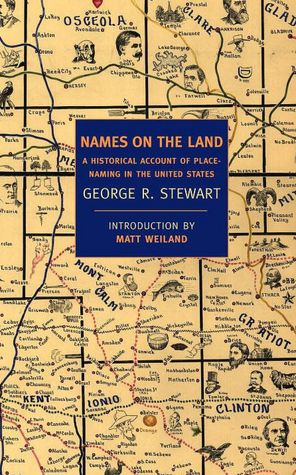 It’s easy to forget that place names are not “real” in the sense that they exist other than in our collective minds, but are impermanent markers bestowed on places by man. There’s nothing that commands New York is “New York,” the Mississippi River to be so named, or the island of Molokai to be called that.
It’s easy to forget that place names are not “real” in the sense that they exist other than in our collective minds, but are impermanent markers bestowed on places by man. There’s nothing that commands New York is “New York,” the Mississippi River to be so named, or the island of Molokai to be called that.
I’m reminded of this each time I fly. From 35,000 feet you can see many natural barriers and landmarks, but there are no labels on the land as on a map. This gives a fleeting sense of perspective which reduces political distictions — which are bolstered by names and labels — to a somewhat random convention, and makes the age-old fights over land and territory seem a bit trivial.
If you didn’t already possess that sense, then Names on the Land by George R. Stewart (originally published in 1945, republished in 2008), should give you the long view. Stewart, who was a professor at the University of California, provides the history of place naming in the United States (there’s even a section on why our country is the “United States of America,” and not “Columbia” or “Alleghania”). Starting in prehistory and a fanciful section on why we bestow names on places, progressing from the first Spanish names in the continent in the early 1500’s (Florida), through the Dutch and English periods, and taking us to the modern era, Stewart chronicles the major periods in U.S. history, and how each contributed new names and new conventions to the naming rite. Two chapters, added after the book’s initial publication, detail the sources of place names in Alaska and Hawaii.
This no dry etymology, and the book at times reads like a novel, as befitting the author of the post-apocalyptic science-fiction classic Earth Abides. It is also filled will subtle humor, as in this passage discussing why English names, so common in New England, did not spread elsewhere:
Thus early, the more insular of the English began to carp, and such judgments were to be frequent in later centuries. But this book will pay them no more attention, because they all followed the stupid pattern set by Master Dudley Carleton. They assumed that the traditional names and ways or naming of the little island were the only proper ones. They made no allowance for different landscapes and racial strains, or for new ideals and an ever-flourishing imagination. They are much, however, for “good taste” and for linguistic purity, as was natural for the inhabitants of a country blessed with Maidenhead, Fryup, Sizergh, Great Snoring, Shitlington, and Ashby de la Zouche.
Each chapter contains a series of little mysteries, and Stewart unfolds each story slowly, until finally revealing a familiar name. Some of the more enjoyable tales:
- Pennsylvania might have been “New Wales” if the King’s secretary, a Welshman, had his way (p. 103).
- The mystery surrounding what “Oregon” means: oregano? “big ear?” Aragon? The Abenaki “orighen?” (p. 154-55).
- Why is the Chief Executive the “President of the United States of America,” yet in the oath of office required to “faithfully execute the office of President of the United States?” Why aren’t we Columbia, or Appalachia, or, heaven forbid, Usona? (p. 172).
- You might assume that the Royalist names in the colonies would not survive the Revolution, yet they did. Why? (p. 188).
- How the name of Portland, Oregon was settled with a flip of a coin (it might have been Boston) (p. 253).
There’s similar tidbits every few pages.
This is a book that every property lawyer should find fascinating. I sure did — the moment I finished it, I picked it up and started reading it again.